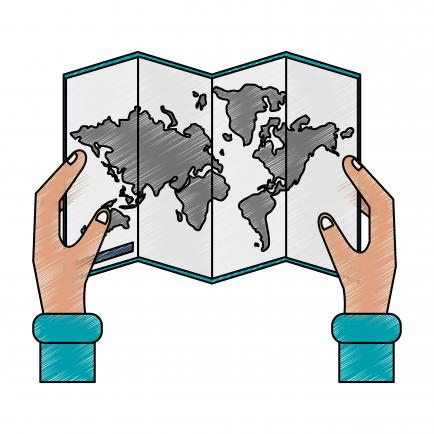
We might not talk about it as much as we do other diseases, but depression is one of the most common diseases in the world. According to the World Health Organization (WHO), more than 300 million people worldwide live with depression.
Depression doesn't care where you live - and yet some countries have more people with depression than others. So, which countries have the most depression, and do you live in one of them?
India
The country with the largest percentage of people with depression is India. The WHO says that 56 million Indians suffer from depression and an additional 38 million have anxiety disorders.
Depression gets worse if not treated, and that may explain why India leads this list. The country has a shortage of qualified mental health professionals. Also, the persistent social stigmas toward mental illness likely prevents some of those affected from seeking treatment.
China
China is another large country with a significant mental health issue. Depression leads the way, but there are also large numbers of people who struggle to cope with anxiety and other disorders.
In some ways, China's problem with depression is like India's. The country spends only 2.35 percent of its budget on mental health and only 15 percent of its citizens have health insurance that plays for psychiatric care.
Here, too, social stigma is an issue. The WHO estimates that 91.8 percent of all Chinese people with a mental disorder such as depression will never seek help for their condition.
United States
The United States is still struggling to get past outdated ideas and stigmas about mental illness, which might explain by many people here don't seek treatment for depression.
The National Institute of Mental Health estimates that 16.1 million people age 18 or older have major depression in the United States. That translates to 6.7 percent of the adult population.
The depression problem in the U.S. is compounded by the fact that in 4,000 areas identified by Mental Health America, there is a shortage of mental health professionals. While social stigma is not as strong in the U.S. as it is in India and China, there is still a tendency to believe that people with depression should be able to get over it without help.
Brazil
Approximately 4.4 percent of the adult population in Brazil has depression, putting it above the world average and giving Brazil the highest incidence of depression in Latin America. Depression affects more Brazilian women than Brazilian men.
In addition to depression, Brazil has a high percentage of people with anxiety disorders. And yet, ironically, it also was named the 22nd happiest country in the world, according to the World Happiness Report.
Indonesia
In Indonesia, approximately 3.7 percent of the population, or nine million people, suffer from depression. When those numbers are expanded to include anxiety, they increase to 6 percent of the population over age 15.
Here, as in the other countries we've mentioned, there is a shortage of mental health professionals to treat people who need assistance. Likewise, the social stigma against seeking psychiatric help gets in the way of treatment for some of those who need it most.
Russia
People from Russia have a reputation for being melancholy, and it turns out they have a predisposition toward depression too. According to the World Health Organization, 5.5 percent of its population has depression.
Perhaps not surprisingly, suicide has been a serious issue in Russia too. As of 2012, the country's rate of teenage suicide was three times higher than the world average. There is a heavy correlation between depression, alcoholism and suicide.
Pakistan
In Pakistan, reports say that one-third of the population suffers from stress, depression or anxiety. However, these diseases are difficult to track due to the lack of reporting.
Part of the problem is that Pakistan has only 750 trained psychiatrists. That translates to one doctor for every 10,000 patients with a mental disorder - a serious shortage.
What can we do about depression?
Clearly, there's a global problem with depression. If you think you might have a problem with depression, the best thing to do is talk to your doctor about it. There is help available, and you don't need to suffer alone.

